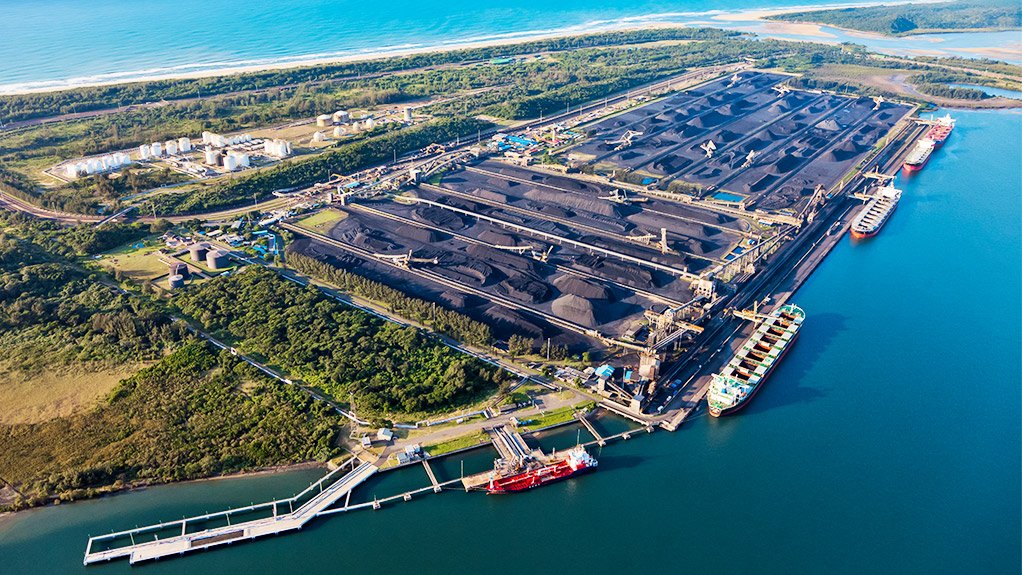
Normally, China does not import coal from South Africa, but 2021 has seen a shift.
Shipments to mainland China were reported on Monday by the African Source Markets’ Weekly Coal Index Report.
“It could be a game-changer but we shouldn’t be too complacent,” African Source Markets CEO Bevan Jones said in response.
China’s power plants have been permitted to import coal from several countries without clearance restrictions, The Global Times of China has reported. This has resulted in 2021 starting on a bullish note for South African coal.
“I’m not sure how sustainable it is as a trend. Obviously, it’s on the back of the Australian ban. Assuming that comes right, then the Australians will enjoy a competitive advantage once more, because of the freight rates.
“The Chinese buyers have normally not really taken South African material and have typically tended to favour Australian coal. But they don’t seem to be too concerned when it comes to price, and it could be a game-changer for South African coal exports.
“In all honesty, all those Far East Asian markets are up for grabs. Whilst the South Africans are chasing the Chinese buyers, the Australians are chasing our existing Indian buyers. There’s fighting over various different market shares going on, so we shouldn’t be too complacent about it being all sunshine and roses because now there’s this wonderful new market. It’s putting pressure on our existing Indian, Pakistan and Sri Lankan markets as well,
Exports of thermal coal to China were worth $4-billion to Australia in 2019 – and the combined export revenue received by Australia from China for both thermal coal and metallurgical coal in that year totalled $13.7-billion.
On Australia’s coal export loss becoming South Africa’s coal export gain, the coal team at Anglo American stated in a written response: “To some extent yes. China has been buying more Indonesian and Russian but several cargoes per month of South African have been reported sold to China for Q1.”
The Anglo team added, however, that trace elements were always an issue for importers, which excluded certain coals from being able to move to China: “Some South African coals can qualify but certainly trace elements remain a barrier to entry into the Chinese market.”
China last bought coal from South Africa in decent volumes in 2014. After that, import duties were applied and in 2015, trace element restrictions imposed, the Anglo team added.
These are the responses of XMP Consulting senior coal analyst Xavier Prevost .
Has Australia’s coal export loss to China become South Africa’s coal export gain?
After five to six years without any exports to China, last December, when a couple of shipments were sent to China, at the beginning of the ‘trade war’ between China and Australia, all said: ‘We’re exporting to China again!’ but since then, no more was exported. Why? I expect that although China needs to replace Australian imports with other coals, South Africa is not on their list of priorities. Our coals were banned from China some years back because they didn’t like our high chlorine and some of the trace elements. Last year shipments were probably an experiment to find out if we could replace, in part, Australian coal. We probably didn’t make the grade, so no more exports.
In 2019, Australia exported $4-billion worth of thermal coal to China. Does the current scenario point to that level of foreign exchange coming to South Africa and not Australia in 2021?
Definitely not! South African exports of about 72-million tons in 2020, cannot, even if China accepts our coal, replace Australian exports, we don’t have enough tonnage and we don’t have the types of coal required. We could export thermal coal, but not metallurgical (coking) coal.
Which countries have replaced Australia as suppliers of metallurgical coal to China?
I think a number of countries; US, Russia and others.
Is there a chance of South Africa also supplying metallurgical coal to China?
Never. We don’t have proper met coal in South Africa. Our best is Grootegeluk’s (Exxaro’s) blend coking coal. All other coking coal producers are no longer operating. India buys our thermal low ash, high FC coal to use it in sponge iron production, therefore they call it ‘metallurgical’. China doesn’t need the same coal, they want straight coking coal.
The response of Richards Bay Coal Terminal (RBCT) was that it was not in a position to comment: “We’ll be releasing our annual data during January, which will show the geographical supply out of South Africa over the past 12 months. Any current changes would need to be provided by the coal exporters themselves, as to the trend,” RBCT added.
Data compiled by Refinitiv showed China’s imports from Australia to be a mere 447 523 t in December, the lowest since the global provider of financial market data started compiling vessel-tracking statistics and port particulars in January 2015.
In November, Bloomberg reported that more than 60 vessels carrying Australian coal had been refused permission to offload their cargo, and then in December, thermal coal exports to China from Australia’s busiest coal terminal of Newcastle stopped completely.
Meanwhile, Reuters reports that demand is up owing to the colder-than-usual weather across much of north Asia as well as limited availability of spot cargoes of liquefied natural gas for gas-fired power generation.


